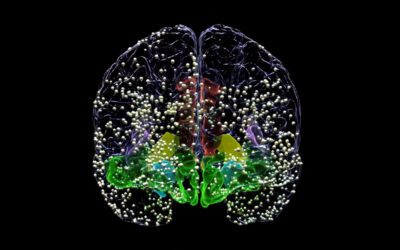Resolving the Conflict Between Lizard and Mammal Brains The human brain is an astonishingly complex and metabolically expensive organ. Weighing in at just three pounds, it consumes a whopping 20% of the body's total energy budget [1]. This high cost is a testament to the brain's incredible processing power, which has allowed humans to become the most intelligent and adaptable species on the planet. But the human brain is not a monolithic entity. Rather, it is a product of millions of years of evolution,...
Mental Health in Alabama: Addressing Unique Challenges and Building Statewide Resilience
Comprehensive Mental Health Resources for the Heart of Dixie
Welcome to Taproot Therapy Collective’s dedicated focus on mental health challenges, resources, and innovations specific to Alabama residents. As Birmingham’s leading integrative therapy practice, we understand that mental health care in Alabama requires deep appreciation for regional culture, rural access challenges, historical trauma, and the unique strengths and struggles that define life in the Heart of Dixie.
Understanding Alabama’s Mental Health Landscape
Our Mental Health in Alabama blog category examines the distinctive factors that influence psychological wellbeing across our state, from the rural communities of the Black Belt to the urban centers of Birmingham, Mobile, and Huntsville. Alabama faces unique mental health challenges including limited rural access to care, higher rates of trauma and adverse childhood experiences, economic stressors, and cultural factors that both support and complicate mental health treatment.
This approach builds on the comprehensive therapeutic services detailed on our main services page, where we provide specialized trauma treatment, EMDR, Brainspotting, and somatic therapies that address the complex mental health needs of Alabama residents while honoring Southern cultural values and community traditions.
Alabama-Specific Mental Health Challenges and Statistics
Alabama consistently ranks among the states with highest rates of adverse childhood experiences (ACEs), with nearly 70% of adults reporting at least one traumatic childhood experience. These statistics reflect generational patterns of trauma, poverty, and limited access to mental health resources that require comprehensive, culturally informed therapeutic approaches.
Rural mental health access represents a critical challenge, with over 60% of Alabama counties designated as mental health professional shortage areas. Many Alabama residents travel hours for specialized mental health care or go without treatment entirely, contributing to higher rates of suicide, substance abuse, and untreated depression and anxiety disorders.
Economic factors significantly impact mental health across Alabama, with poverty rates, unemployment, and underemployment creating chronic stress that exacerbates mental health conditions. Understanding how economic insecurity affects psychological wellbeing helps inform treatment approaches that address both individual symptoms and systemic stressors affecting entire communities.
Research from University of Alabama at Birmingham School of Medicine demonstrates how social determinants of health including housing instability, food insecurity, and limited healthcare access contribute to mental health disparities across Alabama, requiring integrated approaches that address both psychological symptoms and social support needs.
Cultural Considerations for Alabama Mental Health
Southern Culture and Mental Health Stigma creates both challenges and resources for mental health treatment in Alabama. Traditional Southern values of self-reliance, family loyalty, and religious faith can create barriers to seeking professional help while simultaneously providing strong community support networks and spiritual resources for coping with difficulties.
Understanding how concepts of masculinity, femininity, and family honor influence help-seeking behavior helps therapists provide more effective and culturally responsive treatment that honors Southern cultural values while addressing mental health needs. Our approach recognizes that effective therapy in Alabama requires cultural competency and appreciation for regional identity and values.
Religious and Spiritual Resources play central roles in Alabama communities, with high rates of church attendance and religious identification providing both mental health resources and potential sources of support or conflict. Understanding how different religious traditions approach mental health, family relationships, and personal struggles enhances therapeutic effectiveness while respecting spiritual commitments and community connections.
Historical Trauma and Collective Healing addresses how Alabama’s complex history including slavery, segregation, civil rights struggles, and ongoing racial tensions affects mental health across communities. Birmingham’s pivotal role in civil rights history creates unique opportunities for exploring collective trauma, resilience, and healing while addressing how historical events continue influencing contemporary mental health experiences.
Regional Mental Health Resources and Access
Birmingham as Mental Health Hub serves as Alabama’s primary center for specialized mental health services, with major medical centers, research institutions, and training programs providing advanced care options. Our comprehensive approach detailed in our about section emphasizes collaboration with regional healthcare systems to ensure clients receive coordinated, high-quality care.
Teletherapy Expanding Rural Access represents a crucial innovation for addressing Alabama’s geographic barriers to mental health care. Our specialized teletherapy services extend evidence-based treatment to underserved areas throughout Alabama, including dedicated programs for Auburn residents, Florence area communities, and Mobile region populations.
These teletherapy programs specifically address the unique mental health needs of different Alabama regions, from university communities facing academic stress to coastal areas dealing with weather-related trauma to rural communities struggling with economic challenges and social isolation.
Community Mental Health Centers across Alabama provide essential services for residents with severe mental illness, substance abuse disorders, and complex trauma histories. Understanding how community mental health systems work and building collaborative relationships with local providers enhances treatment coordination and ensures clients receive comprehensive care that addresses both immediate crisis needs and long-term recovery goals.
Alabama-Specific Mental Health Conditions and Treatment Approaches
Trauma and PTSD Treatment addresses high rates of trauma exposure in Alabama including military trauma (given significant veteran populations), domestic violence, child abuse, natural disasters, and community violence. Our specialized trauma treatment approaches including EMDR, Brainspotting, and Lifespan Integration provide effective interventions for complex trauma while honoring Southern cultural approaches to resilience and recovery.
Substance Abuse and Co-Occurring Disorders reflect Alabama’s ongoing struggles with opioid addiction, alcohol abuse, and prescription drug misuse that often accompany untreated mental health conditions. Understanding how substance abuse intersects with mental health requires integrated treatment approaches that address both psychological symptoms and addiction recovery while building on community support networks and spiritual resources.
Depression and Suicide Prevention addresses Alabama’s concerning suicide rates, particularly among rural populations, elderly residents, and young adults. Effective suicide prevention requires understanding cultural factors that both protect against and contribute to suicidal ideation while building community-based prevention and intervention strategies.
Anxiety and Stress-Related Disorders examines how economic uncertainty, social change, and cultural pressures contribute to anxiety disorders across Alabama populations. Treatment approaches must address both individual symptoms and environmental stressors while building on Southern cultural strengths including family support, community connection, and spiritual coping strategies.
Research and Innovation in Alabama Mental Health
Contemporary mental health research from Auburn University, University of Alabama, and University of South Alabama explores innovative approaches to rural mental health delivery, culturally responsive treatment methods, and technology-enhanced care that addresses Alabama’s unique challenges and population needs.
Collaborative research initiatives examine how telemedicine, mobile crisis services, and community-based interventions can improve mental health outcomes across Alabama while reducing costs and increasing accessibility. These studies inform policy development and program implementation that addresses systemic barriers to mental health care.
Partnership research with Alabama Department of Mental Health focuses on developing evidence-based programs that address Alabama’s specific mental health priorities including suicide prevention, trauma-informed care, and integrated treatment for co-occurring disorders while building on existing community strengths and resources.
Birmingham’s Role in Statewide Mental Health Leadership
As Alabama’s largest city and medical center, Birmingham plays crucial leadership roles in statewide mental health initiatives including provider training, research coordination, and policy development. Our participation in these broader efforts connects individual therapeutic work with systemic change efforts that improve mental health resources and access across Alabama.
Birmingham’s diverse population provides opportunities for developing and testing culturally responsive treatment approaches that can be adapted for implementation in other Alabama communities. Understanding how urban mental health innovations translate to rural settings helps ensure that evidence-based treatments reach all Alabama residents regardless of geographic location.
The city’s role as transportation and technology hub enables innovative service delivery models including teletherapy, mobile crisis services, and consultation programs that extend specialized expertise to underserved areas throughout Alabama.
Policy and Advocacy for Alabama Mental Health
Understanding Alabama’s mental health policy landscape helps therapists and clients navigate insurance systems, access state resources, and advocate for improved services and support. Current policy priorities include Medicaid expansion, rural access improvement, and integration of mental health services with primary healthcare delivery.
Advocacy efforts focus on reducing stigma, improving insurance coverage for mental health services, and developing comprehensive approaches to addressing social determinants of health that significantly impact psychological wellbeing across Alabama communities.
Professional advocacy includes supporting mental health provider training, supervision, and continuing education programs that ensure Alabama residents have access to high-quality, culturally competent mental health services regardless of geographic location or economic circumstances.
Connect with Our Alabama Mental Health Community
For deeper exploration of mental health challenges and resources specific to Alabama, check out more on the Discover + Heal + Grow Taproot Therapy Collective blog and podcast where we regularly feature Alabama mental health professionals, researchers, and advocates working to improve services and outcomes across our state.
Subscribe to our YouTube channel for discussions on Alabama mental health challenges and innovations, listen to our podcast for interviews with Alabama mental health leaders and researchers, follow us on Instagram for Alabama mental health resources and awareness information, connect on LinkedIn for professional Alabama mental health networking and resources, find us on Google Maps for comprehensive mental health services serving Alabama residents, and join our Reddit community for discussions on Alabama mental health challenges, resources, and advocacy efforts.
Featured Article Categories
Our Mental Health in Alabama blog includes Rural Access and Teletherapy addressing geographic barriers to mental health care, Cultural Competency exploring Southern culture and mental health intersections, Trauma and Resilience examining Alabama-specific trauma patterns and recovery resources, Policy and Advocacy covering Alabama mental health legislation and systems change, Research and Innovation highlighting Alabama-based mental health studies and programs, Community Resources providing comprehensive guides to Alabama mental health services, Suicide Prevention addressing Alabama’s suicide rates and prevention strategies, and Substance Abuse Integration examining co-occurring disorders and treatment approaches specific to Alabama populations.
Specialized Alabama-Focused Programs
We offer monthly Alabama Mental Health Advocacy Groups for individuals interested in policy and systems change, quarterly Rural Mental Health Outreach Programs providing consultation and training for underserved areas, specialized Cultural Competency Training for mental health professionals serving Alabama populations, and Alabama Trauma Recovery Intensives addressing state-specific trauma patterns and community healing approaches.
Start Your Alabama Mental Health Journey Today
Understanding and addressing mental health challenges specific to Alabama requires cultural competency, regional expertise, and commitment to improving access and outcomes for all residents. Our Birmingham-based team at Taproot Therapy Collective combines deep knowledge of Alabama culture and mental health landscape with evidence-based treatments detailed in our psychology and research section to provide comprehensive care that honors both individual needs and community context.
Contact Taproot Therapy Collective: 📍 2025 Shady Crest Dr. Suite 203, Hoover, AL 35216
📞 (205) 598-6471
🌐 www.GetTherapyBirmingham.com
🎧 Podcast: gettherapybirmingham.podbean.com
We provide comprehensive mental health services that address Alabama-specific challenges while honoring Southern cultural values and community strengths for effective, culturally responsive therapeutic care.
Discover + Heal + Grow with Taproot Therapy Collective – Birmingham’s comprehensive resource for Alabama mental health understanding, advocacy, and culturally responsive therapeutic care.
Ketamine for Trauma and PTSD – Interview with Dr. Harrison Irons from Southern Ketamine and Wellness
Interviews and Case Studies, Ketamine for Trauma and PTSD
https://www.youtube.com/watch?v=YKeR4siEbPc We work with many providers in the area to make sure that our clients receive the best care for their unique issue. One of the providers in the area of medical IV Ketamine is Southern Ketamine and Wellness. Dr. Harrison Irons was kind enough to sit down with us and explain the process for receiving ketamine treatment. Ketamine infusions are used in the treatment of PTSD, panic disorders, dissociation, dopamine disorders, mood disorders and the management of chronic...



